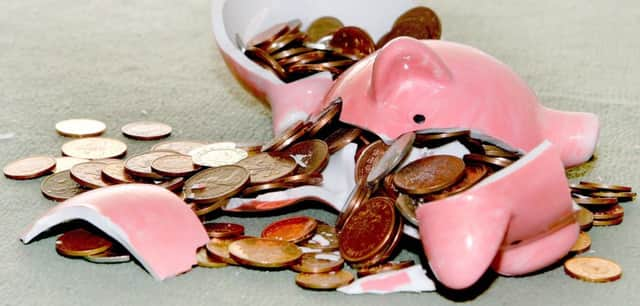Why council tax is an even worse debt problem than credit cards


Calls to our team at Debt Advisory Centre would typically be from consumers seeking advice on how to cope with repayments on these as they struggled to cope with a change in their circumstances. Often this included redundancy or loss of overtime, relationship breakdown, people coping with sickness or even those unable to work whilst caring for a relative.
Fast-forward to today and things look quite different. While we still help lots of people who are having difficulty repaying credit, we have seen a rise in the number of who are struggling to pay their household bills, and in particular, their council tax.
Advertisement
Hide AdAdvertisement
Hide AdLast year, council tax overtook credit cards as the most common debt problem. In fact Citizens Advice said it saw a 14 per cent rise in cases related to council tax arrears in the year to September 2015.
Research by Debt Advisory Centre found that 13 per cent or 6.7 million people have council tax arrears. Here in Yorkshire, 10 per cent of consumers say that they are behind with their council tax bills.
While just over half of those people have arrears of one or two months, 5% of those questioned have amassed council tax arrears of three months or more.
Worryingly, it’s young people aged between 18-24 that are most likely to have fallen into arrears with their council tax bill. A quarter of those questioned admitted to having fallen behind. And almost as many of those aged 25-34 said they have council tax arrears.
Advertisement
Hide AdAdvertisement
Hide AdOur research shows that more than a third of those with council tax arrears failed to pay their bill because they needed to use the money to cover their rent or mortgage. A further fifth said they needed to pay utility bills and 14 per cent had to keep money to buy food.
Just 15 per cent who failed to pay council tax bills said it was because they needed to cover unsecured debt such as a credit card.
One reason for the increase in people struggling with council tax may be that many councils have cut back on the Council Tax Support (or Reduction) that they offer their residents as they seek to balance their budgets.
If you are struggling to pay your council tax bill:
• Contact your council immediately and agree a plan of regular payments that you can afford. If you don’t and you get into arrears your council may cancel instalment payments and ask for the whole amount to be paid within 7 days.
Advertisement
Hide AdAdvertisement
Hide Ad• Find out if you’re entitled to a reduction in your council tax
• If you are facing further action such as a liability order from the courts for non-payment don’t avoid the letter. If a liability order is granted against you your council could recover what you owe from your wages or benefits.
• If you are worried about further action being taken against you, seek independent money advice.
Debt Advisory Centre: 0161 871 4881